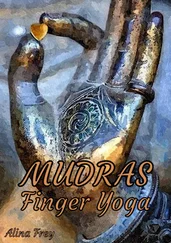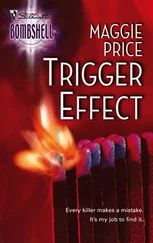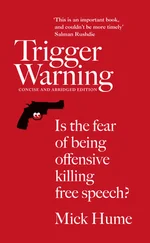“Are you okay?” She asked.
“Why wouldn’t I be okay?”
“I was listening. I heard.”
“Did Abby?”
Allie sighed and shook her head. “No, thankfully. When you went on the air, she was up here screwing around on Facebook. She forgot all about it.”
She had forgotten about it because she had other things going on in her life, important things like boys and the constantly shifting tectonic plates of friendship that comprised the middle school social structure. She could do this because on that night back in February, she saw nothing. She had awakened to the sound of gunfire, but then her mother had appeared in her room, telling her not to be afraid, everything was okay. She hadn’t seen the bodies or the blood, because after the deputies left, I’d concealed the bloody mess with garbage bags so that she wouldn’t see a single drop of it. The mindless terror of that night had missed her; while she had stood closer to ground zero than most people, the incident had, in the end, happened to someone else. Consequently, she forgot about it from time to time. It didn’t rule her life like it ruled mine.
“Thank God for small miracles,” I muttered.
“Who was he,” she asked, dropping the question mark off the end like Dr. Koenig.
“Who?”
“That crazy caller.”
I shrugged and folded my hands on top of my head as I lay on my back. I had read once about sleeping positions and their correlation with personality; lying on one’s back supposedly demonstrates an inner confidence. Hands folded atop or behind the head indicates a cerebral quality that goes along with it. A confident and intelligent man—dare I say hero —would lay like this. I intended to fall asleep in this position. I possessed that inner confidence. Two men had tried to kill me and I’d killed them instead.
As I would kill the Bald Man if he tried anything.
“Some nutjob,” I said. I toyed with the idea of telling her about Ruby the Redneck Fortune Teller but decided against it for the time being. Allie held a college degree, but she still carried around elements of the superstition that her Germanic tribesman ancestors had passed down through the centuries. She would create a connection there that didn’t actually exist, and then she would get scared, because Ruby had said to beware the Bald Man. “Dumbass sitting around in his trailer with nothing better to do than call in to AM radio shows. He’s a nobody. Don’t worry about it.”
“You’re not worried?”
“No,” I lied. “Not one little bit.”
I didn’t fault Craig Montero for asking me why I had an AK-47; I had never told him about it before. Actually, I hadn’t told anyone. Although it was only semiautomatic and therefore perfectly legal for me to own, I considered it one of my dark secrets, evidence of a side of my personality that I didn’t want the outside world knowing about. People would make their jokes about Kevin Swanson ranching up down in the country and getting paranoid just like all the other rednecks out there, but that wasn’t really it. I kept it quiet because it said things about the inner workings of my mind—specifically, that I, Kevin Swanson, attorney-at-law, had considered and accepted the idea of possibly having to take a human life one day. Had I wanted to hunt—which I didn’t—I’d have bought a deer rifle or a shotgun. Had I just wanted to target shoot, I’d have bought a .22 rifle, maybe a pistol. But I had an AK-47, the Kalashnikov so beloved of terrorists and third world armies. This said things about me that I didn’t want anyone hearing.
I also didn’t want to explain how I came to own it. The short answer: my dad left it to me. Like most short answers, though, this one is grossly inadequate.
My father died three years ago, when I was thirty-three and he seventy-five. The year before that, he suffered a series of small strokes that profoundly altered his personality and rendered him unable to continue living alone in the house at Rock Barn. While Bobby and I could occasionally forget that our father was old, the strokes reminded us. Even doctors have health problems; even nonsmokers and marathon runners begin to break down. For my father, it happened at seventy-four, when the hard drive in his head started to go bad.
Although Allie and I lived closer to Hickory than Kate and Bobby, I didn’t get out there very much. I could blame Carwood, Allison and its needy clients, but truth be told, I didn’t want to go. I didn’t want to see him struggle for the names of everyday objects; I didn’t want to hear him complain about my mother like she was still alive and lying drunk on the couch in the living room. So I turtled up. I went to see him maybe once every month or two, ignoring the rapidly approaching time when I couldn’t see him at all.
Yes, I am ashamed of myself.
Kate and Bobby, on the other hand, traveled there every weekend. When Bobby deployed to Iraq, Kate quit her job in Jacksonville and actually moved in at Rock Barn. She called us daily with updates on Dad’s status, for which I was profoundly grateful because looking back on it, I don’t think I would have called on my own.
Shortly after he returned from the hospital after the last of the smaller strokes, Kate called to say that he had begun seeing things. This occurred mainly near the end of the day, when the sun grew low in the sky and lengthening shadows combined with a tired and damaged brain to create an environment ripe for hallucinations.
“There are people in the yard,” he told her. “Back and front. We have to do something about this.”
“They’re looking for their golf balls, Daddy,” she replied. By this point, he had forgotten that Kate wasn’t actually his daughter. But, honestly, so had the rest of us.
“That’s what happens when you live on a golf course.”
“No,” he insisted. “Not golfers. Not those kind of people. Other people.”
“What kind of people?”
“ Others, ” he said, face scrunched with worry. “And they want us.”
They had this exchange dozens of times, my father insisting that he saw people in his yard—which irritated him, because he spent a great deal of money on landscaping—and Kate doing her best to assure him that no, he didn’t. When she asked him what these others looked like, his lips would tighten into a nearly invisible line and he would shake his head and he would stand beside whatever window he’d spied them from, maintaining a watch.
These others appeared with greater frequency as time went on. When they began showing up at night, my father would shuffle into Kate’s room and wake her up.
“They’re trying to get in,” he hissed. “We have to call the police!”
“There’s nobody out there,” she replied. “Just go back to bed and try to relax.”
God bless her, but you can’t say go back to bed and try to relax to a man convinced that shadowy assailants are trying to break into his house. Eventually, he grew so frustrated with Kate’s continued lack of interest in their mutual safety that he called the police himself. After he pulled this a few times, she hid the phone and told us that we needed to consider putting him in a rest home, a request I denied for weeks until I finally relented and made the journey out to Conover to broach the subject with him. As I expected, that discussion didn’t go well. It ended with me getting up from the living room couch and storming out the door, hunching my shoulders to protect my neck from the arrows of ugliness he shot at me. I remember getting into my car and thinking about Abby, that sweet little face that recalled my mother and my wife at the same time, and I thought, I’m never going to do this to her. I’ll kill myself first.
Читать дальше












